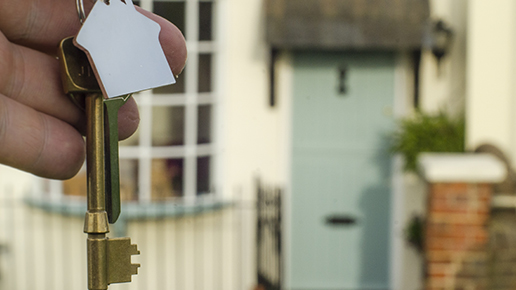
Introduction
Buying a home is one of the biggest financial decisions most people make. If you’re searching for residential property Bangalore, this article gives you 10 practical pointers to reduce risk, save money, and make a confident purchase — whether you’re a first-time buyer or an investor.purchase a residential property in Bangalore,
1. Fix your budget & get loan pre-approval
Why it matters: A clear budget keeps you realistic and speeds up negotiation.
What to do:
- Calculate maximum EMI you can afford (include other monthly commitments).
- Get a pre-approval from 1–2 banks — this strengthens bargaining power.
- Factor in upfront costs: stamp duty, registration, brokerage, GST (if applicable), one-time maintenance/security deposits, and a 2–3% buffer for miscellaneous fees.
- Buying a house in Bangalore
2. Best Locations for Residential Property in Bangalore
Why it matters: Location affects daily life, resale and rental potential.
Checklist:
- Commute time to work and public transport (metro/bus) — test the route at peak hour.
- Proximity to schools, hospitals, grocery, and parks.
- Future infra (metro lines, flyovers) and planned commercial hubs.
- Micro-market liquidity — some pockets sell faster than others.
- Residential real estate in Bangalore
3. Key Documents Needed for Buying a House in Bangalore
Why it matters: Clear title avoids legal trouble later.
Documents to check:
- Title deed / chain of previous sale deeds.
- Encumbrance certificate (EC) for last 13–30 years.
- https://bbmp.gov.in/homeUp-to-date Khata and property tax receipts (for Bangalore: BBMP/BDA area specifics).
- No pending court cases or liens on the property.
Action: Hire a property lawyer to run an encumbrance and title check before you pay earnest money.
4. Check approvals, OC/CC & RERA registration
Why it matters: Approved projects reduce the risk of stop-work or demolition notices.
What to verify:
- Sanctioned plan and Commencement / Occupation Certificate (OC).
- RERA registration number for under-construction projects — verify project details on the Karnataka RERA portal.
- If the project is resale, check for building completion certificates and all NOCs (fire, environmental if required).
5. Assess builder reputation & delivery track record
Why it matters: A reliable builder reduces delivery delays and quality issues.
How to check:
- Completed projects — visit them.
- Delivery timelines vs committed dates.
- Customer reviews, legal disputes, and financial stability.
- For resale, ask for maintenance history and records of past repairs.
6. Understand carpet vs built-up vs super built-up area
Why it matters: Price per sq. ft. can be misleading.
Guideline:
- Prefer carpet area for comparing usable space.
- Check the exact area in the sale agreement; confirm how parking, balconies and common areas are charged.
- Ask for the builder’s area statement and sample floor plan.
7. Scrutinize the payment schedule & agreement terms
Why it matters: Payment milestones determine financial risk and interest payout.
Key clauses:
- Payment linked to construction milestones (safer) vs date-of-possession installments.
- Liquidated damages/penalty clause for builder delay.
- Cancellation policy and refund timeline.
- Transfer charges, maintenance start date, and parking allocation details.
8. Inspect construction quality & run a snagging checklist at possession
Why it matters: Early detection of defects saves money and hassle.
What to inspect:
- Plaster, tiles, waterproofing, joints, plumbing, and electrical fixtures.
- Door/window alignment, paint and grout lines, elevator operation.
- Water pressure & backup, sewage/drainage functioning.
- Create a snag list and insist the builder rectify before final handover.
9. Factor in ongoing costs & resale/rental potential
Why it matters: Owning property has recurring costs that affect ROI.
Considerations:
- Monthly maintenance, sinking fund, property tax, and home insurance.
- Expected rental yields in the micro-market if you plan to rent.
- Future resale appeal: accessibility, school catchment, and upcoming infra.
Rule of thumb: For many Bangalore localities, short-term appreciation can be patchy — think 5–7+ year horizon for steady capital growth unless you’re buying in a high-demand micro-market.
10. Use professionals: lawyer, inspector, and tax advisor
Why it matters: Experts reduce legal and financial risk.
Who to hire:
Key cheks Needed for Buying a House in Bangalore
- Real estate lawyer for title/contract vetting.
- Home inspector or civil engineer for a condition survey (especially resale).
- Tax advisor/chartered accountant for tax planning and GST/IT advice.
- If taking a home loan, consult the bank’s checklist and get a formal sanction letter.
- Legal Checks Before Purchase of Residential Property in Bangalore
- Investing in Bangalore residential property
- Sale agreement / allotment letter
- Title deed & chain of earlier sale deeds
- Encumbrance certificate (EC)
- Khata / mutation / property tax receipts
- Occupation Certificate (OC) / Completion Certificate (CC) for completed projects
- Approved plans and NOCs (fire, environment if applicable)
- RERA registration (project page) / builder PAN and GST (if needed)
- All payment receipts / bank statements showing payments
- Waterproofing test (terrace & bathrooms)
- Plumbing: no leaks, proper drainage slope
- Electrical: all switches/points working, earthing check
- Doors & windows: locks and alignment
- Lift & backup power working, water tanks clean
- Handover: keys, warranties, user manuals, meter readings
Negotiation tips
- Use bank pre-approval as leverage.
- Ask for waiver/discount on maintenance deposit or first-year maintenance.
- Request free parking or discounted parking fee.
- Negotiate minor repairs and snag items to be completed before transfer.
